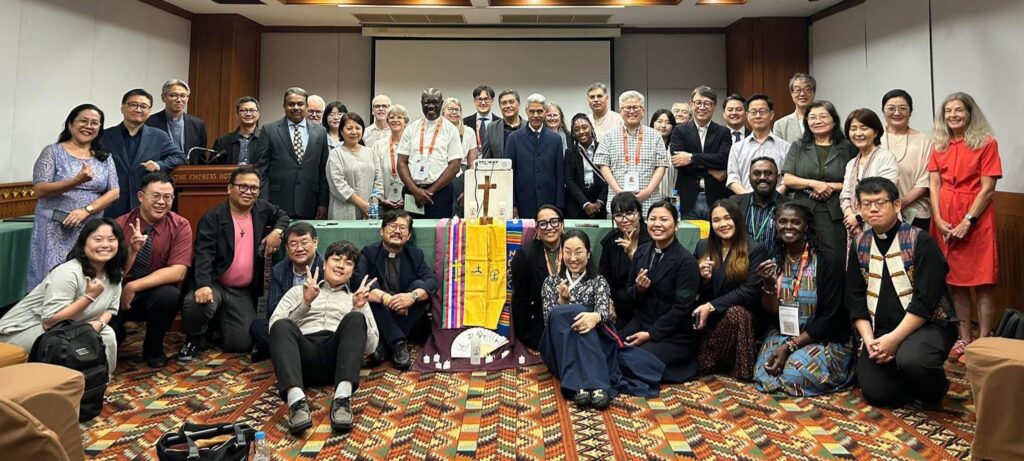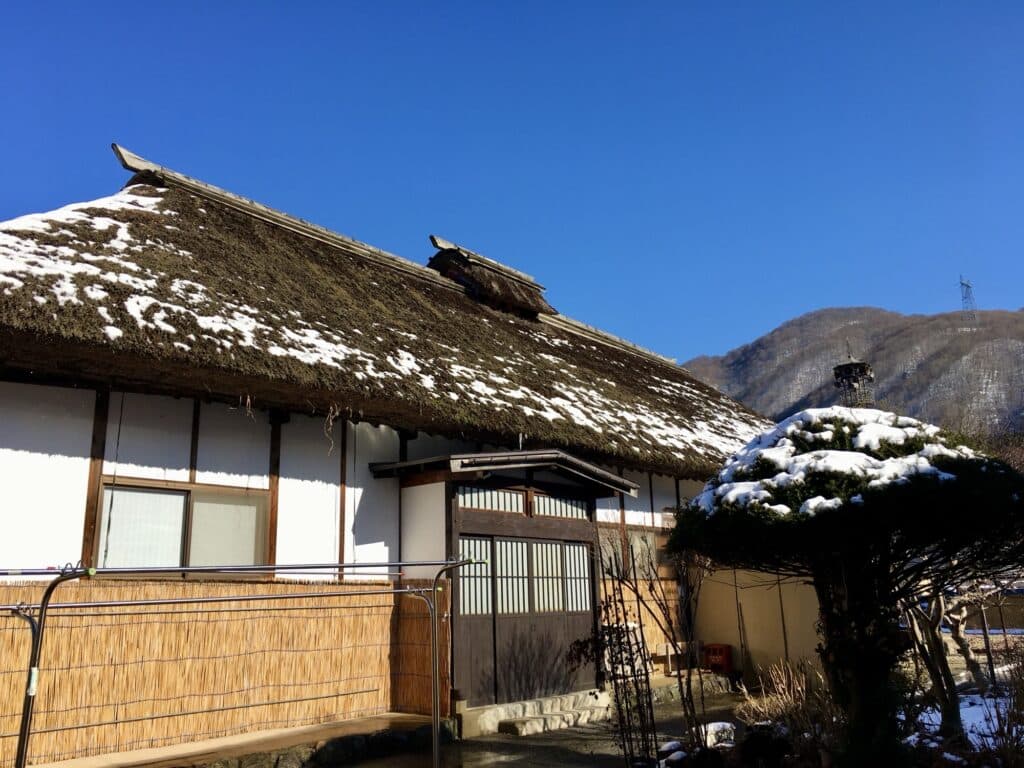Renovations for the Asian Rural Institute (ARI)

Find the most current update here
Read ARI’s most recent annual report
Japan
The Asia Rural Institute (ARI) has worked for over 45 years in leading nine-month courses in their Rural Leaders Training Program. ARI’s mission statement is “To build an environmentally healthy, just, and peaceful world in which each person can live to his or her fullest potential.” On average, 30 students take this nine-month course each year, coming from throughout Asia, the Pacific, and Africa. The participants receive training in sustainable agriculture through integrated organic farming techniques, as well as community building, and servant leadership workshops.
With ARI’s hands-on approach to learning, the participants have the opportunity to practice what they learn in the classroom on their 12-acre organic farm. This enables ARI to produce the majority (85-90%) of food consumed within the community. Both classroom and hands-on training focuses on food self- sufficiency, long-term environmental management, and climate change awareness.
In addition to agriculture, ARI prides itself on its attention to social justice. Gender balance, inclusivity, and empowerment are woven into the curriculum and training throughout the year. In the classroom, inequality and the marginalization of women is a topic addressed frequently.
The graduates of the Rural Leaders Training Program return to their home communities to help lead local agricultural communities in transforming local practices toward sustainable agriculture which makes the best use of the local human and natural resources. These graduates help to create a bright vision for the future in their home communities.
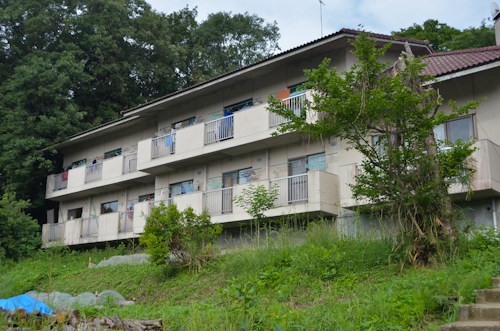 The Asian Rural Institute (ARI) has determined that renovating its women’s dormitory is crucial to continuing its commitment to gender equity and optimizing participant experience at their agricultural training programs. Damage caused by the 2011 earthquake, along with aging of the building’s fixtures and wall materials, has left the women’s dormitory in a state of deterioration. The condition of its facilities is rather uncomfortable due to poor ventilation, mold, and barely-functioning appliances.
The Asian Rural Institute (ARI) has determined that renovating its women’s dormitory is crucial to continuing its commitment to gender equity and optimizing participant experience at their agricultural training programs. Damage caused by the 2011 earthquake, along with aging of the building’s fixtures and wall materials, has left the women’s dormitory in a state of deterioration. The condition of its facilities is rather uncomfortable due to poor ventilation, mold, and barely-functioning appliances.
To the leaders of ARI, giving due attention to the state of the women’s dormitory is not only a call for renovation but also a statement that they take seriously their goal of maintaining a 50-50 ratio of women to men participants. Over thirty years old, the dormitory has housed hundreds of female leaders from around the world as they cultivated the skills and leader-mindset necessary to support their local communities.
The dorm’s restroom renovation plans include installing four new shower units, in addition to setting up new walls, fixtures, ventilation, and lighting. The kitchen of the dorm will receive new walls and appliances. These improvements will be made with sustainability-minded design features to reduce ARI’s carbon footprint, as well as use durable, easy-to-clean materials that will allow the use of environmentally-friendly cleaning supplies. Staff and volunteers alike will take part in renovation efforts, and ARI hopes that the project can be completed by the end of this year. For ARI participants, the dormitories are part of their experience of developing a community, one of the fundamental concepts taught at ARI. A welcoming dorm is a welcoming home away from home.
Read the Spring 2018 ARI newsletter here
Update: March 2019
The Asian Rural Institute (ARI) in Japan seeks to build an environmentally healthy, just and peaceful world, in which each person can live to his or her fullest potential. The ARI’s programming teaches sustainable agriculture, servant leadership, and community development.
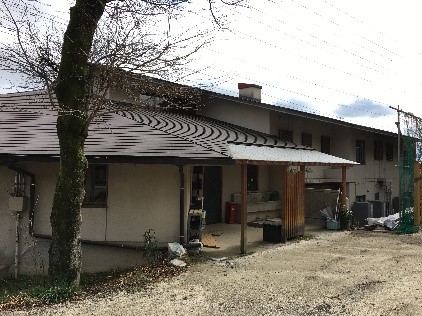 The Asian Rural Institute (ARI) has determined that renovating its women’s dormitory is crucial to continuing its commitment to gender equality and optimizing participant experience at their agricultural training programs held on the ARI campus. Damage caused by the 2011 earthquake, along with the aging of the building’s fixtures and wall materials, left the women’s dormitory in a state of deterioration. The condition of its facilities is rather uncomfortable due to poor ventilation, mold, and barely-functioning appliances.
The Asian Rural Institute (ARI) has determined that renovating its women’s dormitory is crucial to continuing its commitment to gender equality and optimizing participant experience at their agricultural training programs held on the ARI campus. Damage caused by the 2011 earthquake, along with the aging of the building’s fixtures and wall materials, left the women’s dormitory in a state of deterioration. The condition of its facilities is rather uncomfortable due to poor ventilation, mold, and barely-functioning appliances.
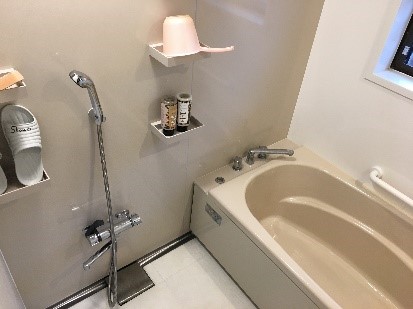 Many women participating in the ARI’s programming utilize the women’s dormitory. This includes 10-15 new participants each year who use these dormitories for nine months, university groups conducting research for a few days, interns and assistants who utilize them for 10 weeks to a year, and a Women’s Conference that welcomes 40 women each year. The women’s dormitory plays a vital role in ARI’s ability to serve women.
Many women participating in the ARI’s programming utilize the women’s dormitory. This includes 10-15 new participants each year who use these dormitories for nine months, university groups conducting research for a few days, interns and assistants who utilize them for 10 weeks to a year, and a Women’s Conference that welcomes 40 women each year. The women’s dormitory plays a vital role in ARI’s ability to serve women.
The work done so far on the dormitory is as follows: Four shower rooms have been remodeled and turned into modular units, and the restrooms were updated with new flooring, paint, stall doors, and lighting. The privacy screens were replaced, and the kitchen was renovated with new appliances, flooring, outlets, lighting, cabinets, and expanded space. A motion sensor light was added to the entrance. Some heaters were replaced in rooms and some new bedding was purchased and implemented.
Some work still is in processes. Circulation fans still need to be added to the storerooms, with new lighting and shelving to be added. More bedding is to be purchased and the rest of the rooms will have new heaters installed.
A few safety-related issues were brought to the attention of ARI during this renovation and will need to be addressed. The exit lights need to be replaced, the drainage pipe needs to be replaced with new pipe, and the entrance door needs the locks repaired.
The renovations already finished along with the safety updates and completed renovations will help ARI continue to offer programming that empowers women to build healthy, just, and peaceful communities.
Support this Ministry
To make a gift for this ministry online or by check use the online donation page.
- 100% of your gift will be directed to Renovations for the Asian Rural Institute (ARI)
- You will receive updates on the work in this area as they become available
- Share in the vision of God’s abundant life for all people
Related Content
World Communion of Reformed Churches adopted statement on Korea
The World Communion of Reformed Churches (WCRC) adopted the following statement on peace in Korea...
Read MoreWorld Communion of Reformed Churches approve Public Witness Resolution on Unpeace in the Philippines
The following resolution was approved by consensus by the World Communion of Reformed Churches...
Read MoreConnect with partners in Japan through the Christmas Card Project
Long-term Mission Co-Worker in Japan, Jeffrey Mensendiek, was instrumental in coordinating...
Read More

